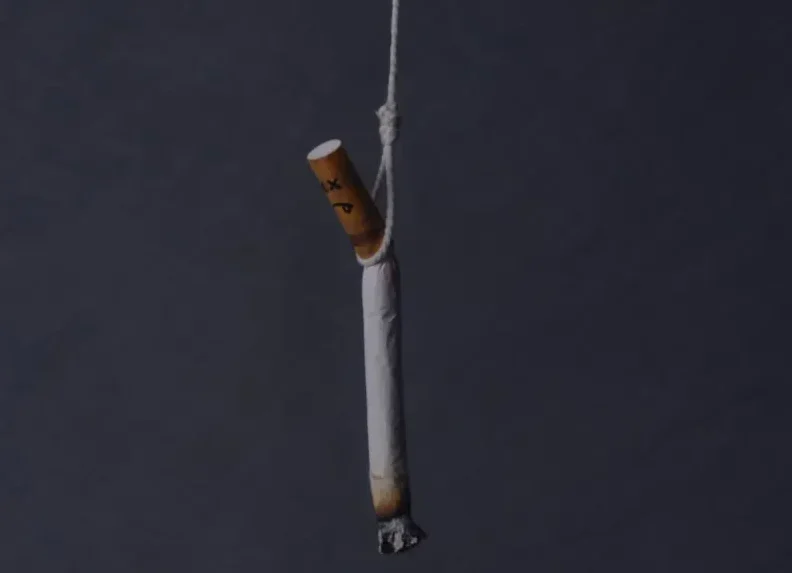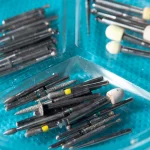Smoking and dental implants are a topic that raises concern for both patients and dentists. While dental implants are one of the most effective solutions to replace missing teeth, smoking can significantly reduce their chances of success. Tobacco use affects healing, blood flow, and bone integration, which are all critical for dental implants.
If you are a smoker thinking about implants, it is important to understand the risks and how smoking impacts the outcome.
Understanding dental implants
Dental implants are small titanium posts placed in the jawbone to act as artificial tooth roots. Over time, the implant bonds with the bone in a process called osseointegration. Once healed, a crown or denture is attached to restore function and appearance.
For implants to work, the bone must heal properly and integrate with the implant. Anything that slows healing or reduces bone strength can cause implant failure, and smoking is one of the leading factors.
How dental implants and smoking are connected
The connection between dental implants and smoking lies in how tobacco affects the body’s healing system. Smoking reduces oxygen in the blood, narrows blood vessels, and weakens the immune system. It makes it harder for the bone and gums to heal after surgery.
Key effects of smoking on dental implants include:
- Reduced blood supply to the gums and jawbone.
- Slower healing time after surgery.
- Higher risk of infection.
- Increased chances of implant failure.
It means dental implants smoking can lower the success rate compared to non-smokers.
Does smoking affect dental implants?
Yes, smoking directly affects dental implants. Studies show that smokers are two to three times more likely to face implant failure than non-smokers. The main reasons are:
- Nicotine reduces blood flow, which slows healing.
- Smoking increases plaque buildup, leading to gum disease.
- Toxins in smoke weaken the bone structure around implants.
So, if you are asking, does smoking affect dental implants? The clear answer is yes, it does, and often in serious ways.
Can smokers get dental implants?
A common question is, can smokers get dental implants? The answer is yes, but with caution. While smoking does not automatically rule you out, dentists will carefully evaluate your oral health, bone density, and commitment to reducing or quitting smoking.
Smokers who get implants may need:
- Extra healing time.
- Regular dental check-ups.
- More frequent professional cleanings.
- Commitment to cutting down or stopping smoking.
If you wonder, can you get dental implants if you smoke? The answer depends on your health and willingness to change habits for better success.
Risks of smoking after dental implant surgery
Smoking after dental implant surgery can be harmful during the healing stage. The first 72 hours after surgery are the most critical, as the gums and bone begin to recover. Smoking during this time can:
- Causes dry socket (a painful condition where the clot fails to form).
- Delay healing of the implant site.
- Increase risk of infection.
- Reduce the chances of osseointegration.
Dentists strongly advise patients to avoid tobacco during the first few weeks of healing to give implants the best chance of success.
Light smoking after dental implant: Is it safe?
Some people ask about light smoking after dental implant surgery, thinking fewer cigarettes may be harmless. Unfortunately, even light smoking can affect healing. Nicotine and toxins still restrict blood flow and can disturb the healing process.
It’s important to note:
- There is no “safe level” of smoking after implants
- Even one or two cigarettes can interfere with healing.
- Complete avoidance during recovery gives the best results.
When can I smoke after dental implant surgery?
Patients often ask, When can I smoke after a dental implant? The truth is, there is no perfect time when smoking becomes risk-free. Dentists recommend avoiding smoking for at least two to three months, as this is when the implant bonds with the bone.
However, the longer you avoid smoking, the better the chances of success. Some patients choose to use implant surgery as motivation to quit smoking altogether.
What happens if I smoke before a tooth extraction?
Before getting implants, many patients go through a tooth extraction. What happens if I smoke before a tooth extraction? The answer is that it increases risks just like after implant surgery. Smoking before or after extraction can cause:
- Poor blood clot formation.
- Delayed healing.
- Higher infection risk.
- Dry socket.
It slows recovery and makes it harder to prepare for dental implants later.
Smoking after immediate dentures
For patients receiving immediate dentures after tooth removal, smoking still carries risks. Tobacco can irritate the gums, cause sores, and increase infection risk under the denture. Since immediate dentures are often the first step before implants, smoking during this stage can affect long-term success.
Before and after a smoker’s teeth
The effects of smoking are visible in before and after smokers teeth comparisons. Smokers often notice:
- Yellow or brown stains.
- Bad breath.
- Gum recession.
- Bone loss leading to tooth loss.
After quitting smoking, patients see healthier gums, reduced staining, and better outcomes with dental implants. Comparing teeth before and after quitting smoking shows just how big the difference can be.
Smoking after teeth whitening and cosmetic treatments
Another related question is about smoking after teeth whitening. Smoking not only reverses whitening results quickly but also damages gum health. For implant patients, cosmetic results are important, and smoking can shorten the lifespan of both whitening treatments and implants.
How to improve dental implant success as a smoker
While quitting smoking is the best option, here are some ways smokers can improve implant success:
- Stop smoking before surgery and avoid it during healing.
- Follow all the dentist’s instructions for aftercare.
- Keep up with regular dental cleanings.
- Practice strict oral hygiene at home.
- Use implant surgery as motivation to quit smoking for good.
How Lincolnwood Family Dental Can Help
At Lincolnwood Family Dental, we understand the challenges that come with smoking and dental implants. Our team provides personal care and guidance to help every patient improve their chances of success.
Here’s how we support you through the process:
- Thorough evaluation: We carefully check your oral health, bone strength, and gum condition to see if you are a good candidate for implants.
- Personalized treatment plan: Whether you are a smoker or planning to quit, we create a step-by-step plan that fits your needs.
- Guidance on quitting or reducing smoking: Our team offers practical advice and resources to help you stop or cut down before and after surgery.
- Advanced care and monitoring: We use modern techniques and provide close follow-ups to make sure your implants heal properly.
- Focus on long-term results: Beyond surgery, we help you maintain your implants with regular check-ups, cleanings, and oral health support.
At Lincolnwood, our goal is to give you a confident smile that lasts. Even if you are a smoker, we are here to guide you, support your journey, and help you achieve the best outcome with dental implants.
Visit Lincolnwood Family Dental to learn more about how we can help you protect your smile. To know more, book an appointment today!
Conclusion: Making the right choice for your smile
The connection between smoking and dental implants is clear. Smoking increases the risk of infection, slows healing, and lowers implant success rates. While smokers can still get implants, they face more challenges and responsibilities.
If you are a smoker, discuss your habits honestly with your dentist. Cutting down or quitting before surgery will improve your chances of success and give you a healthier, longer-lasting smile. Dental implants are a life-changing treatment, but only if your body is given the right conditions to heal and support them.









